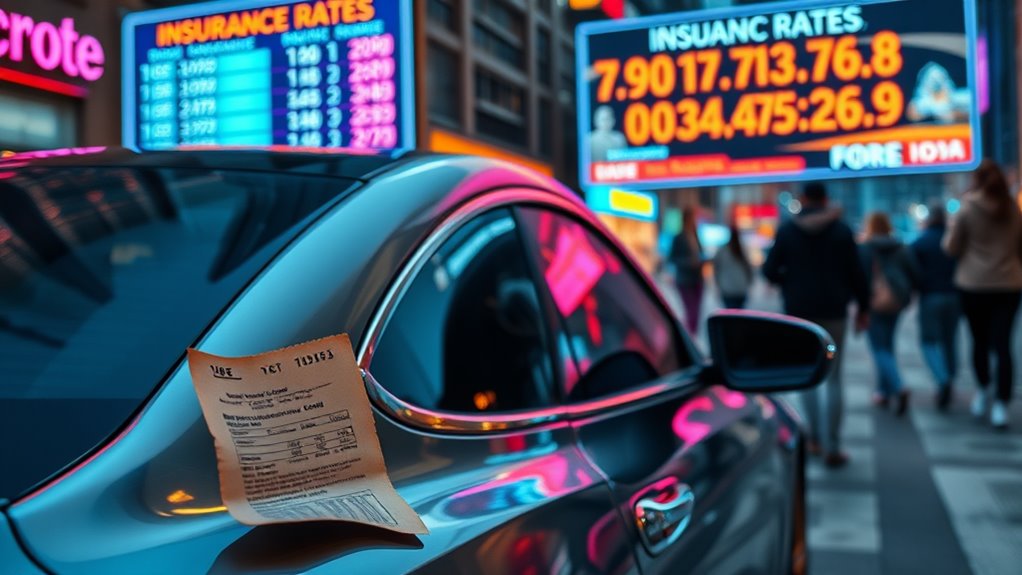Many drivers aren't aware that repeat offenders face unique challenges when seeking SR22 insurance. Finding the right provider can greatly impact both compliance and costs. As you navigate your options, it is crucial to understand which companies cater specifically to your needs. Three standout choices offer tailored solutions, extensive coverage, and competitive rates. Let's explore these options to help you make an informed decision.
Key Takeaways
- GreatFlorida Insurance offers tailored solutions and SR22 options for high-risk drivers, ensuring affordable rates and 24/7 support.
- The General provides comprehensive coverage for repeat offenders and handles SR22 form submissions while offering flexible payment plans.
- Liberty Mutual features competitive SR-22 options, customizable policies, and multiple discounts for bundling or maintaining a claims-free record.
- All three providers assist in navigating SR22 complexities and ensure compliance with state regulations for high-risk drivers.
- Choosing the right provider can lead to personalized service, enhanced customer support, and access to discounts for better affordability.
GreatFlorida Insurance: Tailored Solutions for High-Risk Drivers

When maneuvering the complexities of SR22 insurance, GreatFlorida Insurance stands out by offering tailored solutions specifically designed for high-risk drivers. They provide various SR22 options, including owner, non-owner, and operator certificates, catering to different driving scenarios. Understanding that SR22 isn't just insurance but a financial responsibility certificate, their agents help you navigate the minimum coverage requirements of $10,000 for bodily injury and $10,000 for property damage. Additionally, it's important to note that auto insurance is attainable for high-risk drivers even if they have a complicated driving history. SR22 insurance is often required after certain driving violations, which can include DUI or reckless driving offenses. Their personalized service guarantees you find affordable rates tailored to your unique circumstances, including factors like driving history and credit score. Moreover, GreatFlorida's 24/7 support means you can get assistance whenever you need it, making the SR22 process smoother and more manageable for you.
The General: Comprehensive Coverage for Repeat Offenders
For repeat offenders seeking SR22 insurance, The General offers extensive coverage tailored to meet your specific needs.
They handle SR22 form submissions, ensuring compliance with state regulations, which is essential for maintaining your driving privileges. As a high-risk driver, you'll find policies that cater specifically to your situation, including options for non-owners.
With multi-state coverage, The General can assist you regardless of your location. Additionally, they provide personalized policies, allowing you to customize coverage and possibly benefit from discounts, such as multi-policy or good driver discounts.
Their flexible payment plans can help manage higher premiums, making coverage more affordable. Overall, The General's thorough approach addresses the unique challenges faced by repeat offenders in securing SR22 insurance.
Liberty Mutual: Reliable SR-22 Services With Competitive Options
Liberty Mutual stands out as a reliable choice for SR-22 insurance, offering competitive options that cater to the unique needs of high-risk drivers.
With policy customization, you can tailor your coverage to only pay for what you need. They guarantee compliance with state requirements, filing SR-22 forms on your behalf, which simplifies the process.
While premiums may be higher due to your status, Liberty Mutual provides multiple discounts, including those for bundling policies or maintaining a claims-free record.
Their digital management tools, like a mobile app, allow for easy policy management. Additionally, their established brand and customer support options enhance your experience, making Liberty Mutual a solid option for SR-22 insurance.
Conclusion
In maneuvering the maze of SR22 insurance, choosing the right provider can feel like finding a needle in a haystack. GreatFlorida Insurance tailors solutions as if they're crafting a bespoke suit, while The General offers extensive coverage that wraps around you like a protective shield. Liberty Mutual stands out with competitive rates that almost seem too good to be true, making compliance as smooth as gliding on ice. With these options, you can conquer the challenges of high-risk driving confidently.





